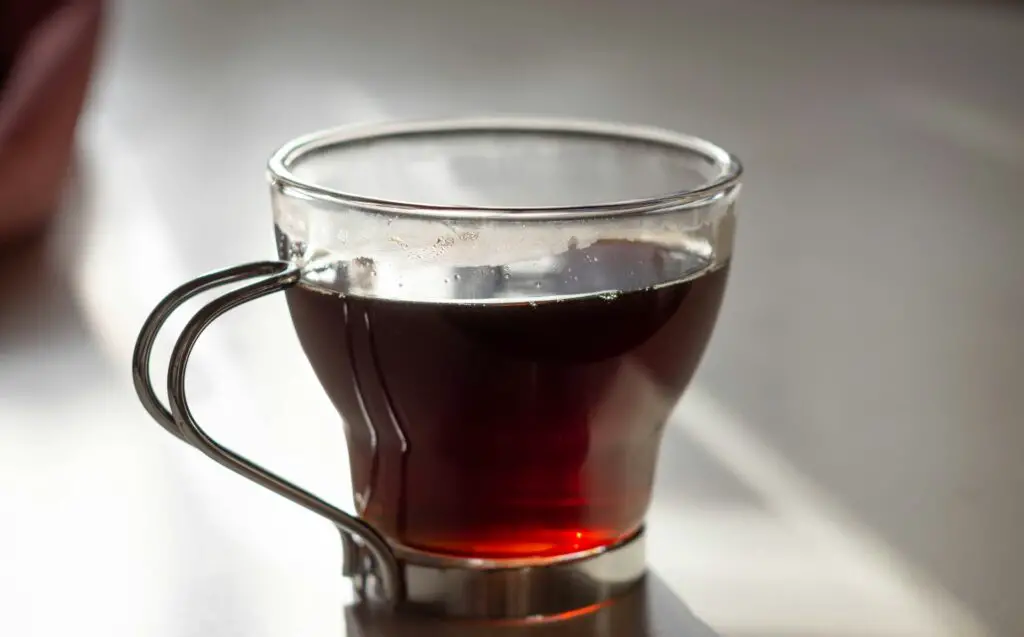When it comes to tea, caffeine content can significantly vary between different types, with black tea often noted for its higher caffeine levels compared to other varieties such as green or white tea. This phenomenon can be attributed to several factors ranging from the processing of the tea leaves to the cultivation and brewing methods. Let’s delve into the reasons why black tea generally packs more caffeine.
Processing Methods
The key factor that influences the caffeine content in black tea is its processing. Tea leaves undergo various processing stages which include withering, rolling, oxidation, and drying.
Black tea is fully oxidized, which is a chemical process that occurs when the leaves are exposed to air and begin to ferment. This oxidation not only darkens the leaves and alters their flavor but also affects the caffeine levels.
Oxidation allows more caffeine to be retained in the leaves compared to less oxidized teas like green or white tea. In contrast, green tea undergoes minimal oxidation, and white tea is barely processed at all, which results in lower caffeine contents.
Leaf Selection
The type of leaves used in tea can also influence caffeine concentration. Younger tea leaves and buds, which are often used to make high-quality black teas like Darjeeling, naturally contain more caffeine than older leaves. These young leaves are typically richer in caffeine as a natural insect repellent to protect the tea plant from pests. Since black tea frequently uses these younger leaves, it generally has a higher caffeine content.
Cultivation Conditions
Cultivation conditions such as altitude, soil type, and climate can affect the caffeine levels in tea plants. Tea plants grown in higher altitudes and in dense fog tend to produce more caffeine.
This adaptation may be linked to the plant’s need for increased protection against the harsher conditions and pests found at higher elevations. As many black teas are cultivated under these conditions, they tend to have more caffeine.
Brewing Techniques
The method and duration of brewing also play a critical role in determining the caffeine content in your cup of tea. Black tea is typically brewed with hotter water and for longer periods than green or white tea, which extracts more caffeine from the leaves. A robust brew of black tea not only releases more of its flavors but also more caffeine.
Black tea’s reputation for having more caffeine than other types of tea is influenced by a combination of its processing, the selection of leaves, cultivation practices, and brewing methods. For those who enjoy a good caffeine kick, black tea offers a perfect choice, while also providing a rich flavor profile that has been cherished across the world for centuries.
Whether you’re looking for an early morning energizer or a mid-afternoon pick-me-up, black tea provides both the boost and the depth of flavor that many tea drinkers love.
Varietal Differences
Beyond processing and brewing, the specific varietal of the tea plant also impacts caffeine content. There are several varieties of the Camellia sinensis plant, each with genetic differences that influence caffeine levels. For example, the Assamica variety, commonly used for producing robust black teas, typically has higher caffeine content than the Sinensis variety, which is more often associated with green and white teas. The intrinsic properties of these varieties contribute to the overall caffeine differences among tea types.
Impact of Blending and Flavoring
Many black teas available on the market are blends of different origins or are flavored with other ingredients like spices, fruits, or flowers. The blending process can alter the caffeine content, depending on the proportion of different teas used. For instance, a blend that includes a significant portion of high-caffeine Assam tea will naturally have more caffeine.
Additionally, some black teas are enhanced with additives that might themselves contain caffeine or compounds that can enhance caffeine’s stimulative effects.
Cultural Brewing Traditions
Cultural preferences in tea brewing can also affect the caffeine content in a cup of black tea. In many parts of the world, particularly in South Asia and parts of Africa, black tea is brewed much stronger and for longer periods than in other regions. This method extracts maximum caffeine, making the tea more stimulating. In contrast, in East Asia, even black teas are often brewed lighter and for shorter durations, which results in less caffeine per cup.
Health and Nutritional Aspects
It’s also worth noting that the higher caffeine content in black tea can have various health implications. While caffeine is praised for its ability to enhance alertness and performance, it also raises concerns about potential effects on sleep patterns and cardiovascular health.
However, black tea contains an array of antioxidants, which can offer beneficial health effects, balancing out some of the potential negatives of caffeine.
The reasons for black tea’s higher caffeine content are multifaceted, involving agricultural, processing, and cultural factors. For those sensitive to caffeine, understanding these elements can help in choosing the right type of tea to suit personal health needs and taste preferences.
Meanwhile, for caffeine lovers, black tea remains a favorite for its strong flavor and energizing properties, making it a staple in many cultures around the world. Whether you prefer a delicate aroma or a robust brew, black tea offers a versatile and enriching experience that has captivated tea enthusiasts for generations.




